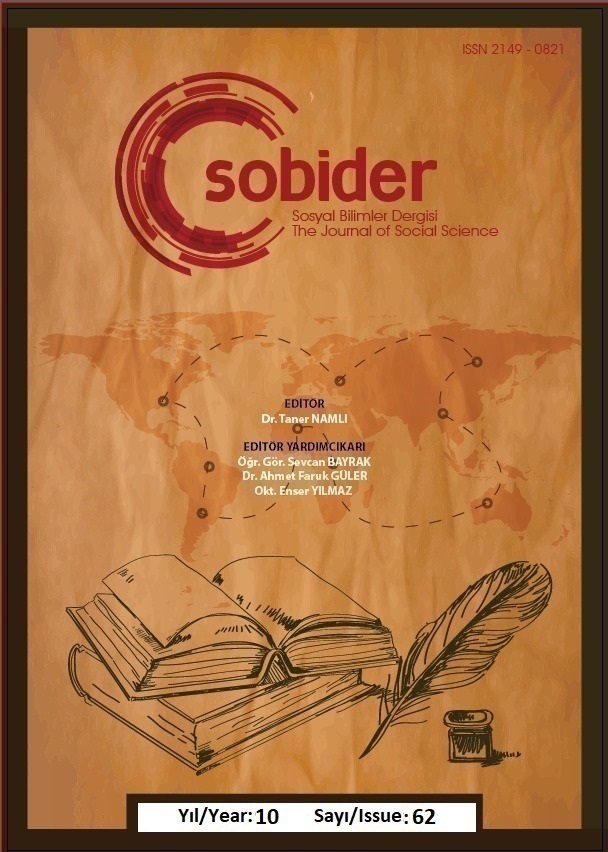Author :
Abstract
Lord Byron’u kendi ülkesini terk edip Yunan saflarında savaşmaya iten nedenlerin ele alındığı bu çalışma bir anlamda 19. yüzyıl Batı dünyasına etki eden Türkofobi akımını ve bunun temel dayanağı olan Filhelenizm yaklaşımını ele almaktadır. Byron’un gözünde ideal toplum olarak görülen Antik Yunan Medeniyeti Osmanlılar tarafından yok edilmiştir. Byron Romantizm’in etkisi ile bu Filhelen söyleme katılırken aslında öykündüğü efsane romantizm kahramanlarından biri olmayı amaçlamıştır. Bir başka deyişle Byron, Batı romantizminde hayran olduğu imgelerin peşinde Doğu’ya gitmiş ve bu imgeleri gerçeğe dönüştürecek argümanlar arayışıyla Yunan cephesinde savaşmıştır. Kısacası, Byron’un Yunan bağımsızlık savaşında aldığı cephe bir siyasi duruşun değil, sanatta kendine bir öykü yaratma istemesinin sonucudur. Bu çalışma Byron'u sanat ve ideolojik imgeler arasında ele alarak şairin anlatılmamış hikayesini seslendirmeyi hedeflemektedir.
Keywords
Abstract
The reasons that led Byron to leave his country and fight in the Greek ranks were discussed in this work and it deals with the Turkophobia movement affecting the 19th century western world and its main basis, philhellenism. As a matter of fact, the ancient Greek civilization which was seen as the ideal society in Byron's point of view was destroyed by the Ottomans. Byron's Romanticism influenced this grecophile discourse and, in fact, intended to be one of the legendary heroes of Romanticism. In other words, Byron came to the east in pursuit of images he admired in Western Romanticism and fought on the Greek front in search of arguments to make these images real. In short, Byron's front in the Greek War of Independence is not a political stance, but a result ofhis desire to create a story in art. This work aims to portray Byron as an untold story of the poet by considering art and ideological images.





